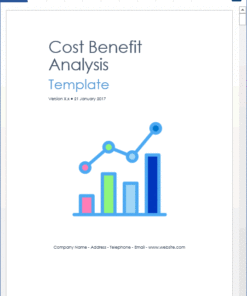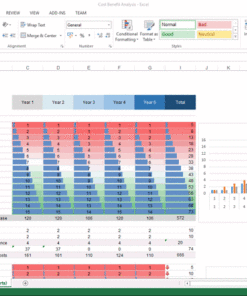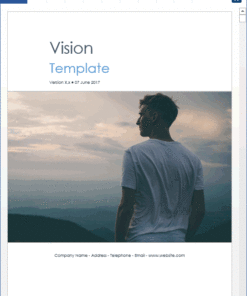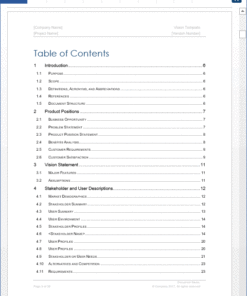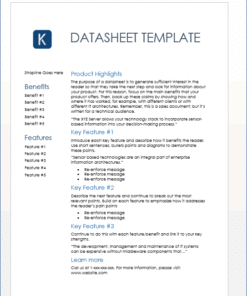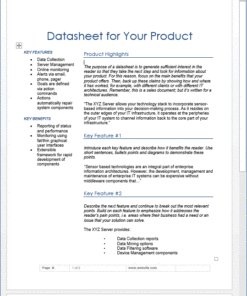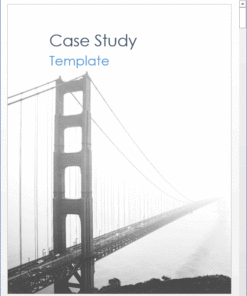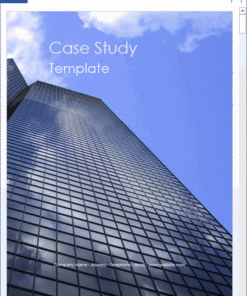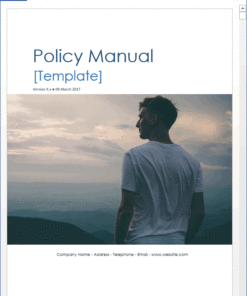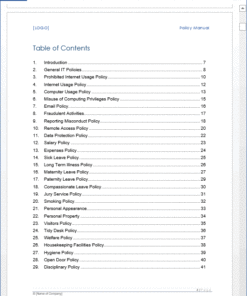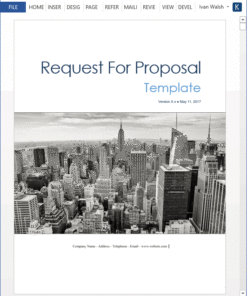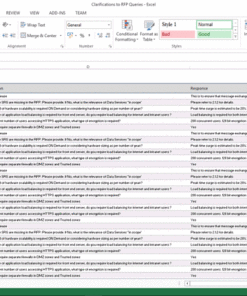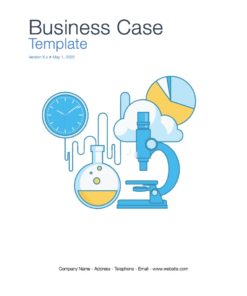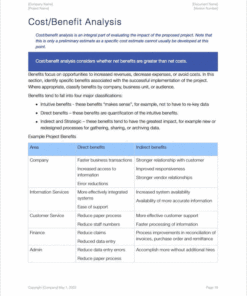Procurement Templates (MS Office)
$9.99 Original price was: $9.99.$4.99Current price is: $4.99.
Procurement Toolkit includes 25 x Microsoft Excel spreadsheet, 25 x Microsoft Word documents. It includes Bid-No Bid log, Clarifications, Competitors Matrix, Costs Breakdown, Deliverables Timetable, Partner / Subcontractor Matrix, Phased Costs, Post-Award Debrief, Proposal Checklist, Proposal Development Schedule, References, RFP Schedule, Status Report, and Success Ratio templates.
Writing your first business proposal? There’s a lot to manage besides the writing, isn’t there? That’s why we created this set of templates. It covers everything you need to prepare, write, respond, and coordinate your proposal development activities.
Example of spreadsheet to coordinate the deliverables you need to prepare for the bid
What’s in the Procurement template pack?
Your Proposal Manager Toolkit includes the following:
- 25 x Microsoft Excel spreadsheets
- 25 x Microsoft Word documents
It includes Bid-No Bid log, Clarifications, Competitors Matrix, Costs Breakdown, Deliverables Timetable, Partner / Subcontractor Matrix, Phased Costs, Post-Award Debrief, Proposal Checklist, Proposal Development Schedule, References, RFP Schedule, Status Report, and Success Ratio templates.
This template pack includes 25 logs, forms, checklists, and templates to help you succeed as a Proposal Manager. It includes Bid-No Bid log, Clarifications, Competitors Matrix, Costs Breakdown, Deliverables Timetable, Partner / Subcontractor Matrix, Phased Costs, Post-Award Debrief, Proposal Checklist, Proposal Development Schedule, References, RFP Schedule, Status Report, and Success Ratio templates.
What Procurement Templates do I need?
You get 25 Proposal Templates including the following:
Document Control
Control all proposals that you are responsible for. Sort by contributor, document number, proposal title, client name, date, review, status, and version.
RFP Schedule
Monitor the schedule of all RFPs that your company plans to bid for. Sort the spreadsheet by Issuers (e.g. Dept of Transport), official document number, proposal title, publication date, submission date, Bid Manager, review date, and its Status, such as Bid or No Bid.
Bid-No Bid Log
Record which RFPs (ITTs) you decide to bid or not bid for. Record the Request For Proposal number, submission date, likelihood of success (e.g. 75% chance of winning bid), its estimated value, potential profit, and risk status.
Success Ratio
Track the success ratio of bids you have submitted. Sort by proposal number, Bid Manager, reason for success (or failure) to win bid, comments, and bid results.
Proposal Development Schedule
Monitor the tasks allocated to team members for the duration of the proposal lifecycle. Sort by team member, section/task (e.g. writer Andy.T is responsible for sections 1,2 4), review and finish dates, status (draft, under review or signed-off), and other comments.
Deliverables Timetable
Track the project’s development phases (i.e. design, development, testing), timeframes, due dates, deliverables and key events, such as Go Live dates.
Bid Team Roles and Responsibilities
Record the bid team’s roles and responsibility by tracking the Request for Proposal’s #, its value (i.e. L/M/H), date issued, who it is assigned to, their role on the project, and the proposal’s status, due date and description.
Capture Review Meeting
Schedule meetings with the proposal team members. Record the Date, Time, Attendees, Agenda, Location, Bid No., Proposal Title, and Comments.
Proposal Checklist
Check that you have covered all the key areas, such as RFP Name, Bid Manager, Section #, Requirements, Description, Priority, Availability, Comment, Resource, and Due Date.
Clarifications
Record details of the clarifications that either you or other bidders have submitted, such as Clarification number, Clarification, Answer, Comments, Status.
Post-Award Debrief
Record details of the debrief, including date, time, attendees, location, bid no., proposal title, and comments.
Costs Breakdown
Capture the overall costs by Section, Description, and Price.
Software Pricing
Record details of the software costing (e.g. 3rd party application), such as its description, qty, Unit Price, Installation Cost, VAT, Comments, Total Cost, and details of Single User, Group License, Shareware.
Server Pricing
Record details of server pricings, including its description, Quantity, Unit Price, Installation Cost, VAT, Expenses and Total Cost.
Phased Costs
Record the costs of all development phases (e.g. Year 1, Year2, Year3) for Software Development, Services, Software, Hardware, Network, Telecommunications, Training, Contingency, and Total. Include the accuracy of this estimate, e.g. up to 50% 60% 70% 80% 90%.
SLA Pricings
Capture the pricing of different Service Level Agreement, e.g. Service Level 1, Service Level 2, Service Level 3.
Risk Assessment
Assess the level of risk involved, e.g. Risk Level Range, Risk Item, The Risk Score, Budget Risk (What risk does the budget represent?), External Dependencies Risk (Dependencies on sub-contractors?), Management Risk, Critical Risk (How critical is this bid for the company?), Failure Risk (What is the risk of failure?), and Complexity Risk (How complex is the bid?).
Status Report
Track the main issues for each project, such as the level of severity, key deliverables, their value, and the level of severity (5 = High, 1 = Low).
Client Meeting Schedule
Arrange meetings with clients. Track the RFP #, Proposal Title, Date, Location, Agenda, Comments, Status.
References
Record the details of your main references, such as their Name, Company, Title, Email, Tel, Confirmed, Comments.
Resume Matrix
Ensure that the correct resumes (CVs) are included in each proposal.
Skills Matrix
Locate the most appropriate individuals for each proposal. Sort by Name, Degree, Masters, Ph. D, Prince 2, Years Exp., Security Clearance, IBM Certified, SUN Certified, Novell Certified, Microsoft Certified.
Partner / Subcontractor Matrix
Identify the most appropriate partner for each proposal. Sort by Partner, Key Contact, Role, Tel, Email, Skills.
Competitors Matrix
Track your main competitors. Record details of their name, Size, Recent Wins, Strength, Weakness, and Industry.
Inventory of Supplies
Maintain an inventory of office and production supplies. Record Order Dates, Item, Supplier, Tel, PO Number, In Stock.
Related products
Business
Business
Business
Business
Business













